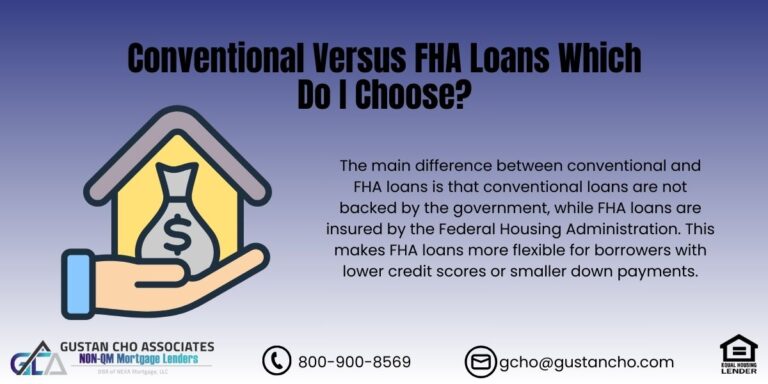UPDATED HUD Guidelines on FHA Home Loans
In this blog, we will discuss and cover the updated HUD guidelines on FHA home loans for 2022. FHA loans are the most popular home loan programs in the United States for homebuyers with lower credit scores and bad credit. Homebuyers with credit scores down to 580 FICO are eligible to qualify for FHA loans with a 3.5% down payment. Borrowers with under 580 FICO down to 500 credit scores are eligible to qualify for FHA loans with a 10% down payment. However, unless it is an FHA Manual Underwriting, all borrowers need to get an approve/eligible per automated underwriting system (AUS).
UPDATED HUD Guidelines For 2022
UPDATED HUD Guidelines effective January 1st, 2022 will make borrowers with under 640 credit scores much tougher to get an approval/eligible per AUS. The automated underwriting system will scrutinize borrowers with under 640 FICO with regards to debt to income ratios, outstanding collections and charged-off accounts, and overall payment history. This is due skyrocketing home prices and the sudden increase in home values in the past few years.
New Version of FHA Handbook of UPDATED HUD Guidelines
The main reason for the UPDATED HUD Guidelines on FHA loans is due to the fact that HUD had concerns about the risk levels. Rising home prices and concerns about the global economy were part of their concerns. Will another Recession be imminent? If so, will there be a housing correction? Both HUD and FHFA have been increasing FHA and Conforming Loan Limits in the past three years due to rising home prices.
Why Are Banks Tightening Mortgage Lending?
It will be more difficult to get an approve/eligible per automated underwriting system (AUS) for borrowers with under 640 credit scores. However, this will not affect borrowers who apply for an FHA loan with Gustan Cho Associates Mortgage. If borrowers cannot get an approve/eligible per AUS, the Team at Gustan Cho Associates will downgrade it to a manual underwrite. FHA and VA Loans are the only two loan programs that allow manual underwriting. Manual underwriting is for borrowers who cannot get an approve/eligible per AUS. As long as the borrower can get a refer/eligible findings on the automated underwriting system, we can manually underwrite an FHA loan. Not all lenders do manual underwriting.
UPDATED HUD Guidelines And How This Change Affect Borrowers
UPDATED HUD Guidelines will impact borrowers with credit scores under 640 FICO. FHA will be adjusting the guidelines for borrowers with under 640 credit scores, thus, making it tougher to get an approve/eligible per AUS. More and more borrowers with under 640 FICO will see refer/eligible finding versus approve/eligible per AUS Findings. Borrowers with under 620 credit scores will see tougher guidelines when it comes to getting an approve/eligible per AUS Findings. Under 620 credit score borrowers with over 43% debt-to-income ratios will most likely need to get their files manually underwritten.
Is Mortgage Lending Tightening?
More and more lenders will be tightening up on their lender overlays for borrowers with lower credit scores and bad credit. Today, FHA AUS allows up to 46.9% front end and 56.9% back end to get an approve/eligible per automated underwriting system (AUS) finding. The UPDATED HUD Guidelines will make it tougher for borrowers with lower credit scores to qualify for FHA loans. Compensating Factors will play a key role for borrowers with under 640 credit scores. The AUS will recognize borrowers with compensating factors. Having a few compensating factors is key in getting FHA AUS Approval for borrowers with lower credit scores.
What Are Compensating Factors in a Manual Underwrite?
Compensating Factors will come into play more than ever for borrowers with under 640 FICO. Compensating Factors are required in manual underwriting with high debt to income ratios. Here are the debt-to-income ratio caps on manual underwrites on FHA loans:
-
- The maximum front-end debt to income ratio with no compensating factors is 31% front-end and 43% back end
- The maximum front-end debt to income ratio with one compensating factor is 37% front-end and 47% back end
- The maximum front-end debt to income ratio with two compensating factors is 40% front end and 50% back end
Underwriting Discretion on Manual Underwriting
The above debt-to-income ratio caps versus compensating factors are just a guide for mortgage underwriters to go by. Mortgage underwriters have a lot of underwriter discretion on manual underwrites. Mortgage underwriters can go past the above DTI recommended guidelines if they see borrowers have strong compensating factors.
FHA Compensating Factors

The following are considered compensating factors by mortgage underwriters:
- All manual underwrites require one month’s of reserves
- Having three months of cash reserves (PITI) is one form of compensating factors
- History of saving money over the years
- History of job longevity in the same industry
- History of consistent pay raises and promotion
- Proof and/or documentation of residual income (income left over after all personal debts and expenses have been paid)
- Proof and/or documentation of income separate from income used to qualify
- Low payment shock of 5% or less
What Is Payment Shock in Mortgage?
Here is what payment shock is:
Evidence of a “minimal housing payment increase” – (A minimal housing payment increase would mean that your mortgage payment is slightly more than/close to the amount of your current rent payment.)
Ability To Repay Pay | Qualified-Mortgage Rule
HUD’s main concern is to make sure the borrowers have the ability to repay their new mortgage loans. HUD wants to make every hard-working family in America become homeowners. But yet, they do not want massive default and foreclosure rates. Mortgage lenders have concerns HUD has and due to these concerns, HUD UPDATED HUD Guidelines. There has been a big increase in FHA Cash-Out Refinance Mortgages due to the appreciating home prices.
Inflation and Volatility of Housing Prices Concerning Mortgage Lenders
The volatility of the markets and global economy, especially with the recent Trade Wars and Tariff Talks. Increase of higher debt to income ratio borrowers. More and more borrowers with lower credit scores are applying for FHA loans. Gustan Cho Associates are mortgage brokers licensed in 48 states. We have a wholesale lending network with over 170 wholesale mortgage lenders in 48 states including Washington DC and Puerto Rico. Most of our wholesale mortgage lenders have no lenders overlays on government and conventional loans.
What Are The Steps Getting an FHA Loan?
Over the most recent years, FHA has seen a continued downward trend in the above areas. Thus, it adds risk to the FHA loan pool. Such risks mean a higher rate of defaults. Higher defaults mean more FHA mortgage insurance claims. An increase in FHA mortgage insurance claims poses a threat to the FHA loan program. Just in 2018, FHA cash-out refinances increased by about 60% compared to total refinances. Also during 2018, 25% of all FHA forward loans closed with over a 50% debt to income ratio. That is the highest percentage since 2000, which is not a good sign.
What Percentage of FHA Loans Are In Default?
Many homebuyers often ask what percentage of FHA loans are in default? HUD, the parent of FHA loans is the federal agency that sets the agency guidelines for FHA loans. As of December 2021, 7.28% of FHA home loans were under default in the United States. The default rate was surprisingly not bad compared to a default rate of 13.56% default rate in December 2020 per updated HUD guidelines. Finally, FHA has experienced a drop in the average borrower credit score. At an average of 670 credit score, it is the lowest average since 2008. Additionally, 28% of all FHA loans during Q1 of 2019 have under 640 credit scores and 13% under 620. For more information about the topic of this article and/or other mortgage-related topics, please contact us at Gustan Cho Associates at 800-900-8569 or text us for a faster response. Or email us at gcho@gustancho.com. The team at Gustan Cho Associates is available 7 days a week, on evenings, weekends, and holidays.






